About the School
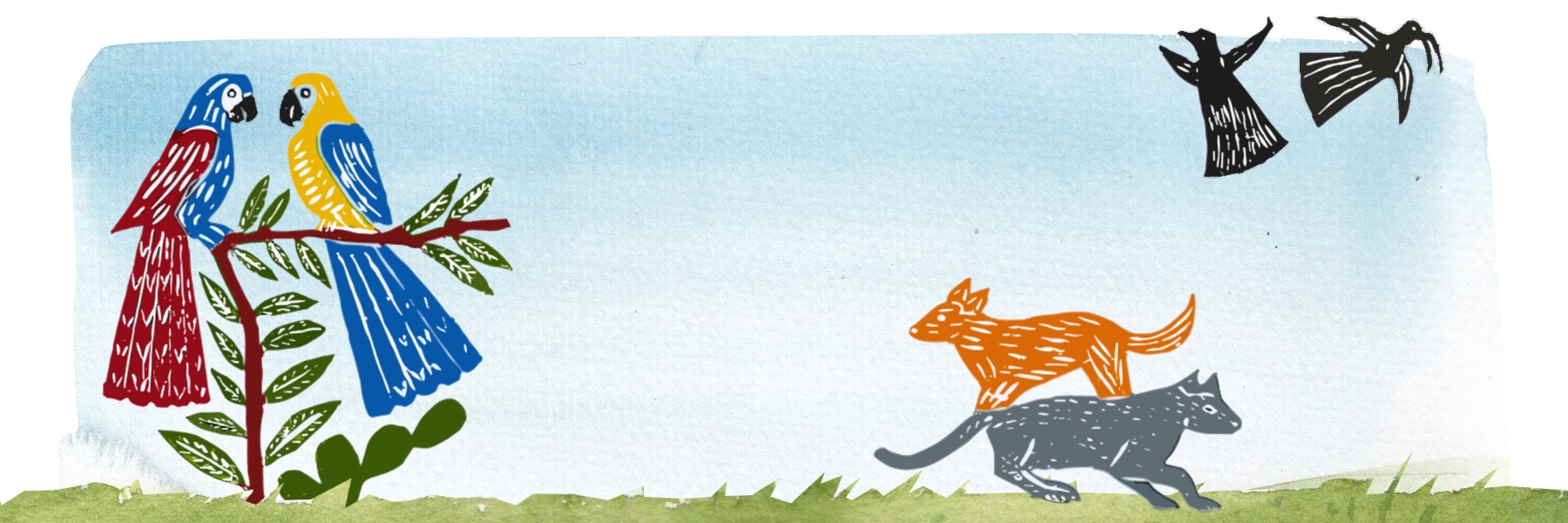
Biodiversity, creativity and originality
A unique experience
The São Paulo School of Advanced Science on Co-designing Biodiversity Assessments was conceived as an intensive, problem-oriented course.
Its key aim is to enable young scientists and technical professionals in the environmental sciences to become proficient in the production and analysis of biodiversity information that assists the development of sounder environmental policies and more effective action programs.
We propose to encompass biodiversity in all its taxonomic, evolutionary, functional and sociocultural dimensions. To foster comprehensive and adaptable assessment procedures that are attuned to real-world demands, lecturers and guest speakers will include field and theoretical ecologists as well as information users and analysts from government agencies, NGOs and the private sector.
Participants will also work on group projects, focusing on specific demands in biodiversity assessments.
The School will take place between October 27 and November 8, 2024 in the city of São Pedro (State of São Paulo, Brazil).
Speakers
Speaker
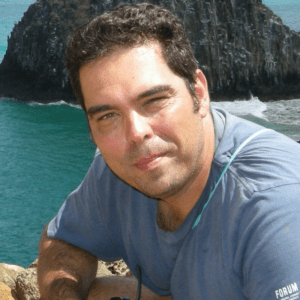
Alexander Turra
University of São Paulo, Brazil
Professor, Oceanographic Institute, USP. Biologist, PhD (UNICAMP, 2003). Leader of the UNESCO Chair on Ocean Sustainability; Member of the Climate Network – MCTI, Brazil; Coordinator of the Coastal Benthic Habitat Monitoring Network (ReBentos); Member of the National Steering Committee of the United Nations Decade of Ocean Science; Member of the Scientific Council of the iAtlantic project - Integrated Assessment of Atlantic Marine Ecosystems in Space and Time; the Scientific Committee of the Inter-American Institute for Global Change Research; Steering Council, BIOTA-FAPESP program.
Speaker
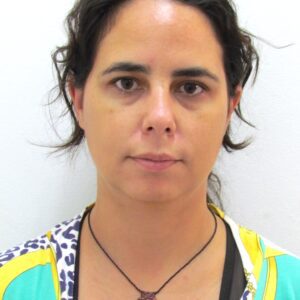
Camila Duarte Ritter
Instituto Juruá, Brazil
Researcher at Institute for Amazonian Research, holds a special interest in unravelling the formation patterns and diversity of Amazonian environments, such as open areas and seasonally flooded forests. Camila believes in scientific development as a powerful tool for conservation and enhancing the quality of life in local communities. With expertise in metabarcoding and environmental DNA analysis of Amazonian samples, her research contributes valuable insights into the intricate ecological tapestry of the region.
Speaker
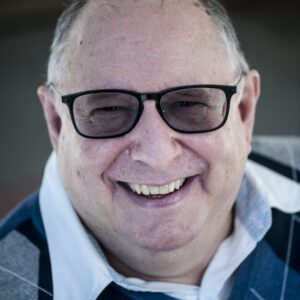
Carlos Joly
University of Campinas, Brazil
Carlos Alfredo Joly has a degree in Biology from the University of São Paulo (USP), a master's degree in Plant Biology from the State University of Campinas (UNICAMP), and a PhD in Botany from the University of Saint Andrews/Scotland. Emeritus Professor at the University of Campinas, Brazil, member of the Brazilian Academy of Science and of the State of São Paulo Academy of Science, Chair of the Science-Policy Advisory Committee of the Inter-American Institute for Global Change Research/IAI, Chair of Brazilian Platform on Biodiversity and Ecosystem Services/BPBES, and Editor-in-Chief of the journal Biota Neotropica.
Speaker
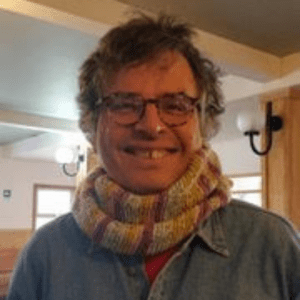
Carlos Scaramuzza
International Institute for Sustainability, Brazil
Technical Director of the International Institute for Sustainability (IIS) in the area of biodiversity conservation and restoration, coordinating projects on public policy and implementation of ecosystem restoration; biodiversity monitoring; best practices for biodiversity in reforestation and mining and integrated landscape management; climate litigation and environmental modeling, among others.
Speaker
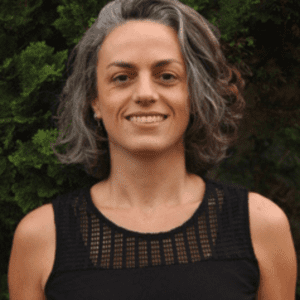
Catarina Jakovac
Federal University of Santa Catarina, Brazil
Assistant Professor at the Federal University of Santa Catarina. Her research focuses on forest succession and ecological restoration, with special interest on how human impacts affect the regeneration process. She is part of the coordination team of the 2ndFOR network, Secretary of the Neotropical Chapter of the Association for Tropical Biology and Conservation-ATBC, member of the Alliance for the Restoration in the Amazon and of the Science Panel for the Amazon.
Speaker

Cristina Banks-Leite
Imperial College London, UK
Reader in the Department of Life Sciences at Imperial College London. She investigates the causes and consequences of species turnover and extinction in fragmented landscapes of tropical regions, and the results from her research have influenced environmental policy in two different countries. Winner of multiple awards, she was featured as one of 15 influential female researchers in the UK. She has served as Board member of BES and INTECOL, editorial boards for Journal of Applied Ecology, Natural Sciences and PECON, and she is currently a panel member for two funding agencies.
Speaker

Debora Pignatari Drucker
Embrapa, Brazil
Data analyst at Embrapa Digital Agriculture, one of the Brazilian Agricultural Research Corporation Research Centers. She holds a degree in Forestry from the University of São Paulo, a Master's in Ecology from the National Institute for Amazonian Research, and a PhD in Environment and Society from the University of Campinas. Her major interest is in mobilizing data to support scientific research and decision-making
Speaker
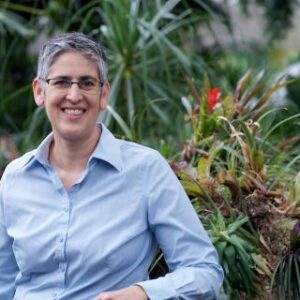
Diane Srivastava
University of British Columbia, Canada
Full Professor, University of British Columbia, Canada. Biologist, PhD (Imperial College, 1997). Director of the Canadian Institute of Ecology and Evolution; Leader of the Living Data Project; Distinguished University Professor, University of British Columbia (2021).
Speaker
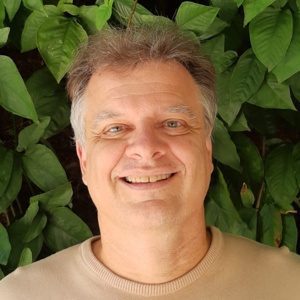
Fabio Scarano
Federal University of Rio de Janeiro, Brazil
Full Professor at the Federal University of Rio de Janeiro and UNESCO Chair in Literacy for the Future at the Museum of Tomorrow. Active in the Intergovernmental Panel on Climate Change and the Intergovernmental Platform on Biodiversity and Ecosystem Services.
Speaker
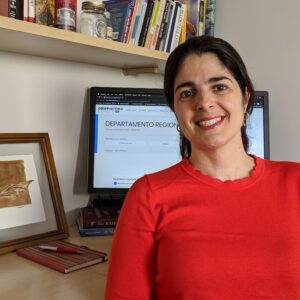
Flavia Marquitti
University of Campinas, Brazil
Assistant Professor at the University of Campinas and Scientific Coordinator of the Training Program in Quantitative Ecology (Instituto Serrapilheira). Flávia is interested in how species form cooperative interactions, the intricacies of speciation, hybridization, and extinction processes, as well as the dynamics that lead to critical transitions within natural systems.
Speaker
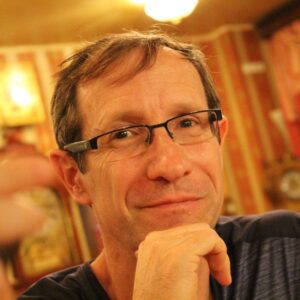
George Brown
Embrapa, Brazil
Researcher at Embrapa Forestry and Professor of the Graduate school in Soil Science at the Federal University of Paraná, also CNPq Research Fellow. His work involves mainly the role of soil organisms, particularly invertebrates in the delivery of ecosystem services, and the impact of anthropic activities on soil animal populations and their diversity. He is presently chair of the International Network on Soil Biodiversity (FAO) and author of 200+ publications involving more than 600 collaborators worldwide.
Speaker

Guilherme Ortigara Longo
Federal University of Rio Grande do Norte, Brazil
Professor and researcher at the Department of Oceanography and Limnology of the Federal University of Rio Grande do Norte, where he conducts research and scientific dissemination activities in the field of marine ecology. Guilherme has focused his research on the impact of climate change on Brazilian reefs, combining modeling and experimentation in the field and laboratory, as well as using social media to promote the scientific process through citizen science on the #DeOlhoNosCorais platform on Instagram.
Speaker
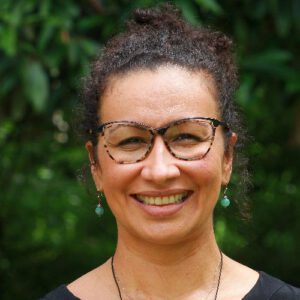
Joice Ferreira
Embrapa Amazônia Oriental, Brazil
Researcher, Brazilian Agricultural Research Corporation (Embrapa Amazônia Oriental). Biologist, PhD (University of Brasília, UnB, 2006). Ecological Engagement Award, British Ecological Society (2019).
Speaker

Letícia Couto Garcia
Federal University of Mato Grosso do Sul, Brazil
Adjunct Professor, Federal University of Mato Grosso do Sul (UFMS). Biologist and Master in Ecology (UFMG), PhD in Plant Biology (Unicamp). Coordinator of the Intervention Ecology Laboratory. Winner of "For Women in Science" Award (Brazilian Academy of Sciences / UNESCO / L'Oreal, 2021). Member of the higher council of the Brazilian Society for Ecological Restoration (SOBRE). Her research focuses on ecological restoration, conservation biology, plant ecology, and environmental laws.
Speaker

Lucas W. Mendes
University of São Paulo, Brazil
Assistant Professor, Center for Nuclear Energy in Agriculture, University of São Paulo (CENA, USP). Biologist, PhD (USP and Netherlands Institute of Ecology, 2014). Vale-CAPES Technology and Innovation Award 2017 in the Young Researcher category; Honorable Mention in the Capes Thesis Award 2015.
Speaker

Maria Carmen Lemos
University of Michigan, USA
Professor at the School for Environment and Sustainability (SEAS) and Principal Investigator of the Great Lakes Sciences and Assessments Center (GLISA) at the University of Michigan, Ann Arbor. She is also Senior Policy Scholar at the Udall Center for the Study of Public Policy at the University of Arizona. Her research focuses on the use of scientific knowledge in environmental public policymaking in Latin America and the U.S., especially related to climate change (adaptation and adaptive capacity building) and the co-production of science and policy (the different means to narrow the gap between useful and usable knowledge). She is a member of the US National Academy of Sciences and was a contributing and lead author of the Intergovernmental Panel on Climate Change (IPCC-AR4 and AR5). She is currently a co-chair of the Climate and Biodiversity Assessment focusing on the US, Mexico and Canada. She has MSc. and PhD degrees in Political Science from the Massachusetts Institute of Technology, MIT.
Speaker
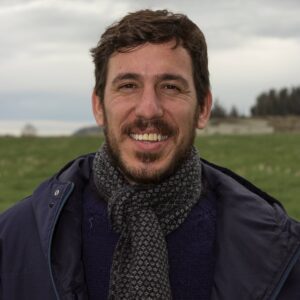
Matías Enrique Mastrangelo
University of Mar del Plata, Argentina
Environmental Scientist from Argentina. He holds a PhD in Conservation Biology. He is a researcher at CONICET, Argentina, and a professor at the University of Mar del Plata. His research focuses on the human and social dimensions of environmental change, with emphasis on how stakeholders make decisions that impact the environment. His main study area is the South American Gran Chaco, where he has been practicing inter- and transdisciplinary research to reconcile agricultural production and biocultural conservation. He has been a lead author of the regional and global assessments on biodiversity and ecosystem services undertaken by IPBES.
Speaker
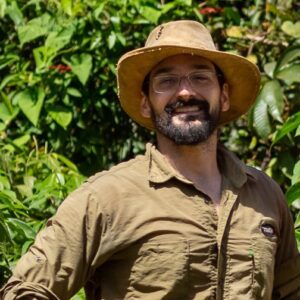
Mathias Pires
University of Campinas, Brazil
Assistant Professor at the University of Campinas (UNICAMP) and Research Fellow of CNPq. Combining ecological and paleontological data, network analysis and mathematical modelling, his research focuses on understanding how ecological interactions affect and are affected by extinctions, shaping diversity dynamics patterns at local and regional scales and in ecological and deep time.
Speaker

Rafael Pinheiro
University of Campinas, Brazil
Postdoctoral researcher at the University of Campinas, funded by Fapesp. His main research interest is the ecology and evolution of species interactions, with a focus on the structure of interaction networks. He holds an MSc and a PhD in Ecology from the Federal University of Minas Gerais and has been a guest researcher in the University of Freiburg and in the German Centre for Integrative Biodiversity Research.
Speaker

Raul Costa-Pereira
University of Campinas, Brazil
- Associate Professor of Ecology at the University of Campinas (Unicamp). His research combines empirical, experimental, and modeling approaches to understand how biological processes operating at the level of individuals scale up through levels of organization to shape diversity patterns in populations, communities, and socio-ecological systems. Raul studies diverse biological systems, from sea lions to microorganisms in tropical metropolises.
Speaker
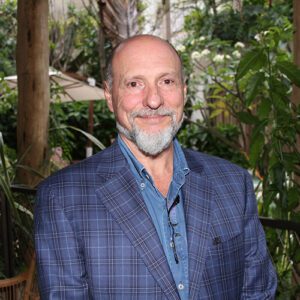
Roberto Klabin
Refúgio Ecológico Caiman, Brazil
Business executive, former CEO and Board member (Klabin, Metal Leve and Lalekla). Bachelor of Laws, USP; Doctor Honoris Causa (UFMS, 2020). Founder and former president of the SOS Mata Atlântica Foundation and the SOS Pantanal Institute; Founder of the Caiman Ecological Refuge; President of the Board of Directors of the LIFE Institute, Curitiba; President, LIDE Sustainability.
Speaker
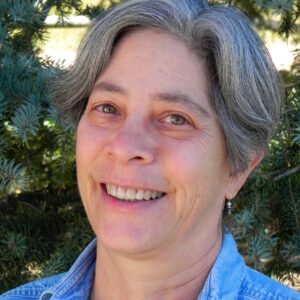
Robin Chazdon
University of Connecticut, USA
Professor Emerita in the Ecology and Evolutionary Biology Department at the University of Connecticut and part-time Research Professor with the Forest Research Institute at the University of the Sunshine Coast in Queensland, Australia. Her research focuses on natural regeneration of forests, and the multiple benefits of forest and landscape restoration. She served as Executive Director of the Association for Tropical Biology and Conservation from 2014-2019. She is a Senior Fellow with the World Resources Institute where she is global co-director of the Assisted Natural Regeneration Alliance. She also works with the FAO Task Force on Best Practices for the UN Decade of Ecosystem Restoration, leading the Capacity, Knowledge and Learning Action Plan.
Speaker
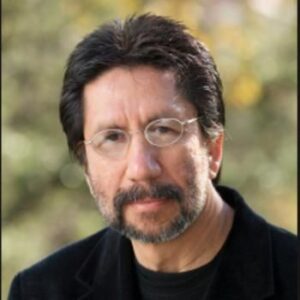
Rodolfo Dirzo
Stanford University, USA
Professor, Stanford University, USA. Biologist, Ph.D., (University of Wales, 1980). Associate Dean - Doerr School of Sustainability; Bing Professor in Environmental Sciences; Professor of Earth System Sciences; Senior Fellow, Woods Institute for the Environment; Co-Director, INOGO Program, Woods Institute for the Environment; Foreign Associate, U.S. National Academy of Sciences; Medal of Merit in Research and Education, International Association of Tropical Biology (2017).
Speaker
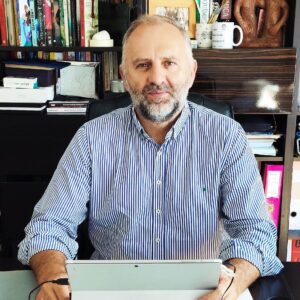
Rui Pedroza
MARE-IPLeiria, Portugal
He holds a Ph.D. in Human Biology from the Faculty of Medicine of the University of Porto, as a master in Cellular Biology and a Bachelor in
Biochemistry from the Faculty od Science and Technology of the University of Coimbra.
He is the President of the Politécnico de Leiria since 2018 and Vice- President of the entrepreneurial business association of Leiria Region (NERLEI) since 2019. Between 2014 to 2018 he has been the Vice-President of Polytechnic of Leiria for Research and Innovation.
Speaker (Co-PI)
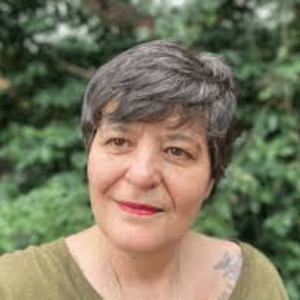
Simone Vieira
State University of Campinas, Brazil
Researcher, Center for Environmental Studies and Research (NEPAM), UNICAMP, CNPq researcher. One of the main themes of her research has been the functioning of Brazilian ecosystems, especially the Amazon and Atlantic forests, in terms of biogeochemical cycles, including the structure and dynamics of the forest and its implications for the carbon cycle in the face of climate change. Member of the panel of experts of the United Nations Framework Convention on Climate Change (UNFCCC) and an associate researcher at the Center for Ecology, Evolution and Environmental Change at the University of Lisbon. Coordinator of the Postgraduate Program in Ecology at UNICAMP and member of the coordination of the BIOTA-FAPESP Program.
Speaker

Thaise Emilio
São Paulo State University, Brazil
Associate Professor of Ecology at São Paulo State University "Júlio Mesquita Filho", Rio Claro Campus. Her research focuses on understanding and predicting patterns of biodiversity and vegetation in space and time, analyzing characteristics, abundance and distribution of organisms. Using an integrative approach, she combines observational studies, field and laboratory experiments, and historical and remote sensing data. Her primary focus is on tropical forest plants, particularly the palm family. Thaise contributes to studies that investigate how the distribution and dynamics of plants, vegetation, and their characteristics influence ecological processes at different scales.
Speaker (PI)
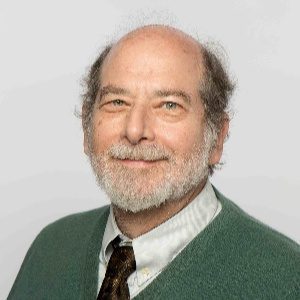
Thomas Lewinsohn
University of Campinas, Brazil
Associate Researcher and Professor of Ecology (ret.), University of Campinas, and Senior Research Fellow of CNPq. His research centers on the spatial and functional organization of biodiversity, especially insect-plant interactions. He has been a consultant on environmental science and policy for the Ministry of the Environment in Brazil, Global Environmental Facility, European Science Foundation, among others; a fellow of the Institute of Advanced Studies of Berlin and the Rockefeller Foundation, Italy, and former president of the Brazilian Association for Ecological Science and Conservation.
Advisory Committee
PI

Thomas Lewinsohn
University of Campinas, Brazil
Associate Researcher and Professor of Ecology (ret.), University of Campinas, and Senior Research Fellow of CNPq. His research centers on the spatial and functional organization of biodiversity, especially insect-plant interactions. He has been a consultant on environmental science and policy for the Ministry of the Environment in Brazil, Global Environmental Facility, European Science Foundation, among others; a fellow of the Institute of Advanced Studies of Berlin and the Rockefeller Foundation, Italy, and former president of the Brazilian Association for Ecological Science and Conservation.
CO-PI

Simone Vieira
University of Campinas, Brazil
Researcher, Center for Environmental Studies and Research (NEPAM), UNICAMP, CNPq researcher. One of the main themes of her research has been the functioning of Brazilian ecosystems, especially the Amazon and Atlantic forests, in terms of biogeochemical cycles, including the structure and dynamics of the forest and its implications for the carbon cycle in the face of climate change. Member of the panel of experts of the United Nations Framework Convention on Climate Change (UNFCCC) and an associate researcher at the Center for Ecology, Evolution and Environmental Change at the University of Lisbon. Coordinator of the Postgraduate Program in Ecology at UNICAMP and member of the coordination of the BIOTA-FAPESP Program.
Advisory Committee
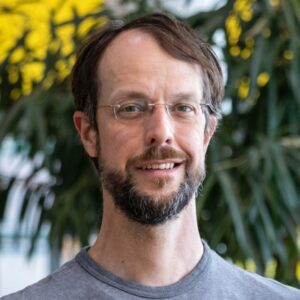
Marten Winter
sDIV - iDIV, Germany
Highly cited macro-and invasion ecologist. As head of sDiv, the Synthesis Centre of iDiv, the German Centre for Integrative Biodiversity Research, he is also a science manager, with a focus on biodiversity research and strong networks across the broad global community of researchers working on biodiversity. sDiv hosts working groups and visiting researchers to address big questions in biodiversity by integrating diverse knowledge to increase the generality and applicability of results and yield novel insights and explanations. As long time experienced head of sDiv and as experiences senior researcher, Marten has been serving as advisor (or still is) for several synthesis or general research initiatives such as the Brazilian synthesis center SINBIOSE, Biota Synthesis, Aquasync, BiodivERsA or Finbio.
Advisory Committee

Bráulio F.S. Dias
Ministry of the Environment and Climate Change, Brazil
Director of Conservation and Sustainable Use of Biodiversity at the Ministry of the Environment and Climate Change, Brazil; Adjunct Professor in the Department of Ecology, University of Brasilia. Biologist, Ph.D. in Zoology (University of Edinburgh, 1981). Director of the Scientific Panel for the Amazon; former Executive Secretary of the UN Convention on Biological Diversity; former President of the global board of Birdlife International; former Director-president of the Pro-Nature Foundation (Funatura).
Advisory Committee

Diane Srivastava
University of British Columbia, Canada
Full Professor, University of British Columbia, Canada. Biologist, PhD (Imperial College, 1997). Director of the Canadian Institute of Ecology and Evolution; Leader of the Living Data Project; Distinguished University Professor, University of British Columbia (2021).
Advisory Committee
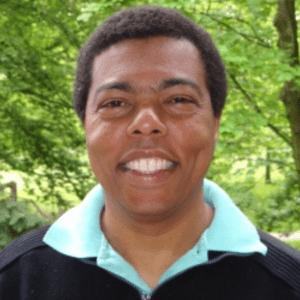
Geraldo Alves Damasceno Junior
Federal University of Mato Grosso do Sul, Brazil
Professor at the Federal University of Mato Grosso do Sul. Has a degree in Biological Sciences from the Federal University of Mato Grosso do Sul (1987), a Master's degree (1997) and a Ph.D. (2005) in Plant Biology from the University of Campinas, and a postdoctoral degree from the University of Hamburg (2014). He has experience in botany, with emphasis on phytogeography, floristics and phytosociology, ecology of plant communities, working mainly on the following topics: flooded areas, Pantanal, dispersal, seasonal forests, riparian forests, flooded fields and their relationship with floods, soils and fire.
Advisory Committee
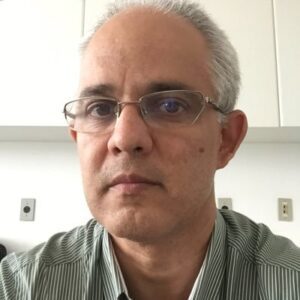
José Alexandre Diniz Filho
Federal University of Goiás, Brazil
Full Professor, Federal University of Goiás. Biologist. PhD (Universidade Estadual Paulista Júlio de Mesquita Filho, UNESP, 1994). CNPq 1A Research Fellow. National Order of Scientific Merit 2018; Elected Member of the Brazilian Academy of Sciences; Director of INCT Institute on Ecology, Evolution and Biodiversity Conservation.
Advisory Committee

Robin Chazdon
University of Connecticut, USA
Professor Emerita in the Ecology and Evolutionary Biology Department at the University of Connecticut and part-time Research Professor with the Forest Research Institute at the University of the Sunshine Coast in Queensland, Australia. Her research focuses on natural regeneration of forests, and the multiple benefits of forest and landscape restoration. She served as Executive Director of the Association for Tropical Biology and Conservation from 2014-2019. She is a Senior Fellow with the World Resources Institute where she is global co-director of the Assisted Natural Regeneration Alliance. She also works with the FAO Task Force on Best Practices for the UN Decade of Ecosystem Restoration, leading the Capacity, Knowledge and Learning Action Plan.
Advisory Committee

Rodolfo Dirzo
Stanford University, USA
Professor, Stanford University, USA. Biologist, Ph.D., (University of Wales, 1980). Associate Dean - Doerr School of Sustainability; Bing Professor in Environmental Sciences; Professor of Earth System Sciences; Senior Fellow, Woods Institute for the Environment; Co-Director, INOGO Program, Woods Institute for the Environment; Foreign Associate, U.S. National Academy of Sciences; Medal of Merit in Research and Education, International Association of Tropical Biology (2017).
Organizing Committee
PI

Thomas Lewinsohn
University of Campinas, Brazil
Associate Researcher and Professor of Ecology (ret.), University of Campinas, and Senior Research Fellow of CNPq. His research centers on the spatial and functional organization of biodiversity, especially insect-plant interactions. He has been a consultant on environmental science and policy for the Ministry of the Environment in Brazil, Global Environmental Facility, European Science Foundation, among others; a fellow of the Institute of Advanced Studies of Berlin and the Rockefeller Foundation, Italy, and former president of the Brazilian Association for Ecological Science and Conservation.
Co-PI

Simone Vieira
University of Campinas, Brazil
Researcher, Center for Environmental Studies and Research (NEPAM), UNICAMP, CNPq researcher. One of the main themes of her research has been the functioning of Brazilian ecosystems, especially the Amazon and Atlantic forests, in terms of biogeochemical cycles, including the structure and dynamics of the forest and its implications for the carbon cycle in the face of climate change. Member of the panel of experts of the United Nations Framework Convention on Climate Change (UNFCCC) and an associate researcher at the Center for Ecology, Evolution and Environmental Change at the University of Lisbon. Coordinator of the Postgraduate Program in Ecology at UNICAMP and member of the coordination of the BIOTA-FAPESP Program.
Organizing Committee

Catarina Jakovac
Federal University of Santa Catarina, Brazil
Assistant Professor at the Federal University of Santa Catarina. Her research focuses on forest succession and ecological restoration, with special interest on how human impacts affect the regeneration process. She is part of the coordination team of the 2ndFOR network, Secretary of the Neotropical Chapter of the Association for Tropical Biology and Conservation-ATBC, member of the Alliance for the Restoration in the Amazon and of the Science Panel for the Amazon.
Organizing Committee

Letícia Couto Garcia
Federal University of Mato Grosso do Sul, Brazil
Adjunct Professor, Federal University of Mato Grosso do Sul (UFMS). Biologist and Master in Ecology (UFMG), PhD in Plant Biology (Unicamp). Coordinator of the Intervention Ecology Laboratory. Winner of "For Women in Science" Award (Brazilian Academy of Sciences / UNESCO / L'Oreal, 2021). Member of the higher council of the Brazilian Society for Ecological Restoration (SOBRE). Her research focuses on ecological restoration, conservation biology, plant ecology, and environmental laws.
Organizing Committee

Mathias Pires
University of Campinas, Brazil
Assistant Professor at the University of Campinas (UNICAMP) and Research Fellow of CNPq. Combining ecological and paleontological data, network analysis and mathematical modelling, his research focuses on understanding how ecological interactions affect and are affected by extinctions, shaping diversity dynamics patterns at local and regional scales and in ecological and deep time.
Organizing Committee

Raul Costa-Pereira
University of Campinas, Brazil
- Associate Professor of Ecology at the University of Campinas (Unicamp). His research combines empirical, experimental, and modeling approaches to understand how biological processes operating at the level of individuals scale up through levels of organization to shape diversity patterns in populations, communities, and socio-ecological systems. Raul studies diverse biological systems, from sea lions to microorganisms in tropical metropolises.
Organizing Committee

Thaís B. Guedes
University od Campinas, Brazil
A herpetologist and biogeographer, FAPESP's Young Researcher at the University of Campinas (UNICAMP; Brazil). She is interested in understanding the distribution patterns of biodiversity and how these patterns change over time and space. She mainly uses amphibians and reptiles (herpetofauna) as models in her studies.
Organizing Committee

Thaise Emilio
São Paulo State University, Brazil
Associate Professor of Ecology at São Paulo State University "Júlio Mesquita Filho", Rio Claro Campus. Her research focuses on understanding and predicting patterns of biodiversity and vegetation in space and time, analyzing characteristics, abundance and distribution of organisms. Using an integrative approach, she combines observational studies, field and laboratory experiments, and historical and remote sensing data. Her primary focus is on tropical forest plants, particularly the palm family. Thaise contributes to studies that investigate how the distribution and dynamics of plants, vegetation, and their characteristics influence ecological processes at different scales.
Mentors
Mentor

Aline Vieira
University of Campinas, Brazil
Biologist and Ph.D. student in Ecology at the State University of Campinas. Passionate about ecology and butterflies, trying to understand how color patterns evolve and how communities are structured in nature.
Mentor

André Nunes Martinez
University of Campinas, Brazil
Biologist and Ph.D. student in Ecology at the State University of Campinas. His work has explored how seed dispersal can help connect fragments of Atlantic Forest and how this connectivity can be altered by restoration initiatives.
Mentor

Gabriela Brasci Berro
University of Campinas, Brazil
Biologist and Ph.D. student in Ecology at the State University of Campinas. She is part of the Laboratory of Ecosystem Ecology and Management (LEME) and her research focuses on ecosystem ecology and plant ecophysiology, seeking to understand the role of epiphytes in the functioning of tropical forests.
Mentor

João Victor Verçosa
University of Campinas, Brazil
Biologist and Master in Ecology from the State University of Campinas. Ph.D. student in Ecology, also at Unicamp.
Mentor
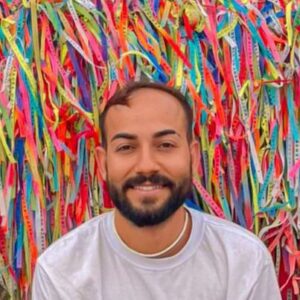
Vitor Cyrino
University of Campinas, Brazil
Ph.D. student at the Laboratory of Ecology and Management of Ecosystems (LEME/UNICAMP), where he studies the influence of climatic and environmental conditions on the role of soil organisms in the decomposition of organic matter. He also supervises and collaborates with the "Young Talents for Science" project of the Rio de Janeiro State Research Foundation.
Attendees
Atendee

Adenle Ademola Andrew
University of Bergen, Norway
Adenle Ademola is a Nigerian and a teacher-Scholar at the Federal University of Technology, Minna, Nigeria. Currently, a Postdoctoral Researcher at the University of Bergen, Norway. His current research jointly addresses problems of land degradation, ecosystem services and sustainable land management
Atendee
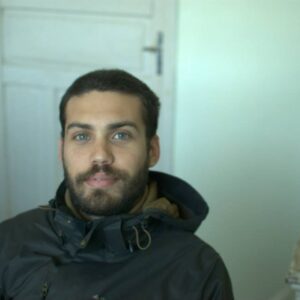
Adrian David González Chaves
Instituto Tecnológico Vale / University of Goiás, Brazil
Venezuelan biologist with master’s and PhD in Ecology by the University of São Paulo, Brazil. Interested on how agriculture and land use management can maintain biodiversity and ecosystem service provision. Mostly focused on plant-pollinator interactions with special interest in native bees and tropical biomes of Latin America
Atendee
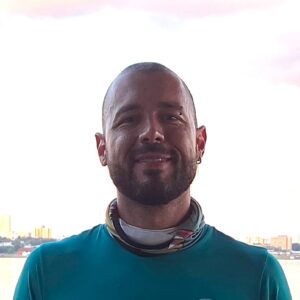
Alexandre Peressin
Federal University of São Carlos, Brazil
Postdoctoral researcher investigating the effects of connectivity loss on fish assemblages, using environmental DNA sampling. My interests includes watershed connectivity analysis and the ecological applications of eDNA
Atendee

Aline Freire de Miranda Cavalcante
Brazilian Institute of Environment and Renewable Natural Resources
Environmental Analyst at Ibama for 10 years. Graduation in biological science with a specialty in ecology, post-graduation in environmental analysis and territory management and master in international nature conservation.
Interested in biodiversity conservation
Atendee

Ana Carolina Mendes dos Santos
Federal University of Minas Gerais / IBAMA , Brazil
Environmental Analyst at the Ministry of the Environment and Climate Change and PhD student in the Environmental Systems Analysis and Modeling Program at UFMG. Area of interest: promoting socio-biodiversity value chains
Atendee

Arthur Fernando Veronez de Sousa
Coimbra University, Portugal
My name is Arthur Veronez, I'm currently at the Centre for Functional Ecology at the University of Coimbra. I'm 31 years old, born in Rio de Janeiro, a biologist from UFF. My career has been focused on benthic invertebrates (marine and mangrove), teaching and environmental education
Atendee

Babu Ram Paudel
Research Centre for Applied Sciences and Technology, Kathmandu, Nepal
I am Babu Ram Paudel, an assistant professor at Tribhuvan University, Nepal. My research field includes the evolutionary ecology of pollination system. Using molecular phylogenetics, my research aims to establish the role of plant-pollinator interaction in shaping the biodiversity of Nepalese Himalayas
Atendee

Bruno Henrique dos Santos Ferreira
Federal University of Mato Grosso do Sul, Brazil
I work on studies on phenology, pollination and reproductive system of Angiosperms. I am also interested in the applicability of these sciences in diagnosing and monitoring ecological interventions, such as restoration ecology and fire management
Atendee
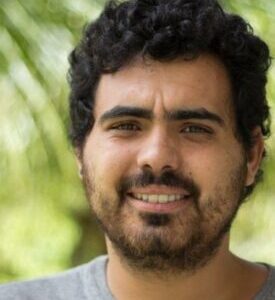
Caetano Lucas Borges Franco
Virginia Tech, USA & Instituto Mamirauá, Brazil
My research focuses on co-management and community-based management of natural resources in tropical forests, with an emphasis on common resources, local ecological knowledge, and protected areas. My Ph.D. project investigates the role of cultural, economic, and institutional factors on cooperation and compliance with small-scale fisheries rules in the Brazilian Amazon
Atendee
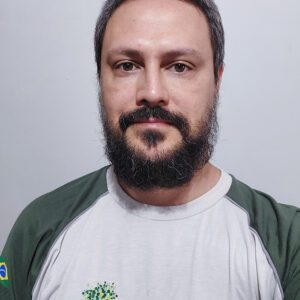
Carlos Roberto Abrahão
Chico Mendes Institute for Biodiversity Conservation, Brazil
I'm Carlos Abrahão, Environmental Analyst at RAN/ICMBio/MMA. Brazilian federal government. I'm a vet with interests in ecology and epidemiology. Work with invasive species, amphibians and reptile conservation in Brazil. Mostly Southeast and Northeast endangered species
Atendee

Catarina Constantino Siopa
University of Coimbra, Portugal
My name is Catarina Siopa, and I am a PhD student at the Center for Functional Ecology, University of Coimbra, Portugal. I am interested in topics related with the reproductive biology and plant-pollinator interactions and its impacts on production of crops as sweet cherry, kiwifruit, and sunflower
Atendee
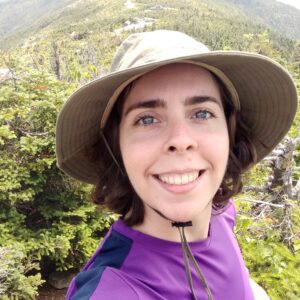
Clarice Braúna Mendes
Federal University of Rio de Janeiro, Brasil
I obtained my PhD in Ecology and Evolution at the State University of Rio de Janeiro (2023). I am a Landscape Ecologist with a strong analytical outlook. My expertise areas include Spatial Data Science, Conservation Biology and Ecological Modelling
Atendee

Cristian Alexander Cruz Rodríguez
Montreal University, Canada
Experienced in species/ecosystem management, modelling, and conservation. Skilled in spatial software for biogeographic analysis. PhD focuses on social-ecological system connections and global biodiversity goals using modelling, species interaction analysis, and socioeconomic dynamics across time
Atendee
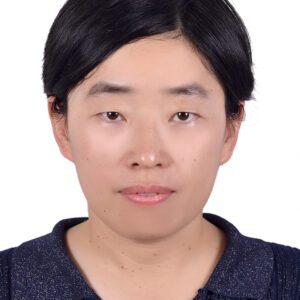
Dandan Yu
Nanjing Institute of Environmental Sciences & Ministry of Ecology and Environment, China
My research focuses on biodiversity, ecosystem services, and sustainable development. At the Nanjing Institute of Environmental Sciences, I develop frameworks, indicators, and models for biodiversity assessments. I have reviewed IPBES reports and work on national R&D projects, exploring future scenarios for conservation. I look forward to sharing insights on how to model biodiversity changes and conservation targets in China, using IPBES tools and methodologies
Atendee

Diana Bertuol Garcia
University of Victoria, Canada
PhD candidate at the University of Victoria, Canada. She has a B.Sc. in Biology and a M.Sc. in Ecology from the University of São Paulo. Her research interests span ecological restoration, community ecology, and how ecosystems respond to environmental change
Atendee

Diana Salgado Swidler
University of Pennsylvania, USA
Diana works for South Pole in NbS project design and implementation of nature & biodiversity strategies.
She is interested in identifying metrics that can be used to assess biodiversity while connecting with the financial world. She is currently looking for a PhD program where she can continue to investigate this interest
Atendee

Ehouman Evans
French Agricultural Research Centre for International Development
Got a PhD in Botany from University Nangui Abrogoua, Côte d'Ivoire, focused on floral diversity's impact on human life. Experienced in floristic data analysis, KAP surveys, forest plantations, and land use effects on soil carbon
Atendee

Elton John de Lirio
University of São Paulo, Brazil
Elton's main research interests are the systematics, evolution, and conservation of plants. He is biologist with a PhD in Botany
Atendee
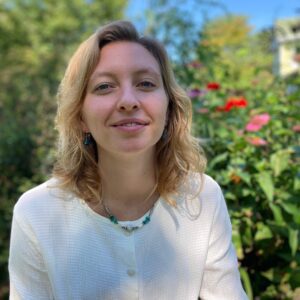
Emiline Grace Koopman
Cultivo, USA
I am a nature loving, dancing prone, travel enthusiast from Washington D.C, with a career dedicated to ecological restoration and monitoring. In my current role working at a nature-tech startup, I promote our mission of unlocking finance into nature at scale, with a specific focus on biodiversity
Atendee

Eric Oliveira Carvalho
The Brazilian Institute of Geography and Statistics
I am a Forester and current curator of the RADAMBRASIL herbarium (HRB) at IBGE. My professional trajectory provided me with opportunities to work in several ecosystems in Brazil and the USA, where I developed projects in forest management, fire ecology, ecosystem restoration and urban forest ecology
Atendee

Ezequiel Chimbioputo Fabiano
University of Namibia
I am Ezequiel Fabiano, a faculty member of the Department of Wildlife Management and Tourism Studies, at the University of Namibia. I have a background on environmental biology. I am particularly interested on long term monitoring system and ecosystem dynamics
Atendee

Giulia Mattalia
Ca' Foscari University of Venice, Italy & Universitat Autònoma de Barcelona, Spain
Holds a PhD in Environmental Sciences (Ca’ Foscari University of Venice & the Universitat Autònoma de Barcelona; 2022). Her postdoctoral project focuses on cultural keystone species as a tool for biocultural diversity conservation and stewardship
Atendee
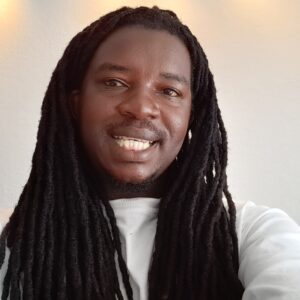
Gregory Mero Dowo
Midlands State University, Zimbabwe
Lecturer, advancing his PhD in Terrestrial Ecology with a focus on socio-ecological systems and participatory conservation. Co-authored a chapter in IPBES’s 2018 Africa report and is founding a non-profit for land restoration with local communities
Atendee

Isabela Freitas Oliveira
Chico Mendes Institute for Biodiversity Conservation, Brazil
My name is Isabela, a biologist with an MSc and PhD in ecology. I am currently managing, identifying, and analyzing fruit-feeding butterfly data for ICMBio's National Biodiversity Monitoring Program. My research interests include community ecology, macroecology, and conservation
Atendee

Isabella Romitelli
Carbonext, Brazil
My curiosity about natural patterns has driven me to explore ecological interactions, including the impact of forest fragmentation and degradation. Now, I apply this knowledge to conservation projects in the Amazon. I love contemplating nature, hiking through forests, and enjoying beaches
Atendee

Jean-Luc Kouassi
Félix Houphouët-Boigny National Polytechnic Institute, Côte d'Ivoire
Assistant Professor in Forestry, specialized in fire ecology, agroforestry and GIS. His research focuses on natural resources, agriculture & sustainable development, with a strong focus on landscape management and climate change mitigation
Atendee

Joice Silva de Souza
University of Campinas, Brazil
Joice S. de Souza is a post-doctoral researcher at UNICAMP. Her research focuses on assessing biodiversity change in response to climatic and anthropogenic drivers (e.g. alien species, land use change). She earned a PhD in Ecology and Evolution from UERJ in early 2023
Atendee

Julia Oshima
University of São Paulo, Brazil
Ecologist and Dr. in Zoology from UNESP Rio Claro. I have developed studies focusing on the spatial ecology of cetaceans, ungulates and recently vultures. I am interested in movement ecology, conservation biology, landscape ecology, and species distribution modeling
Atendee

Kaent Immanuel N. Uba
Mindanao State University, Philippines
Specializing in fisheries biology and management, he is researching harmful algae, the impacts of the invasive mussel Mytella strigata, and the production of the green mussel Perna viridis. His research interests span fish reproductive biology, fish population dynamics, fisheries socio-economics and policy, marine plankton, invasive mussels, and morphometry.
Atendee

Larissa Oliveira Goncalves
Federal University of Rio Grande do Sul, Brazil
Biologist with a Master's and PhD in Ecology. She works on transdisciplinary research focused on the impacts of linear infrastructures on wildlife and the support of the development of public policies
Atendee
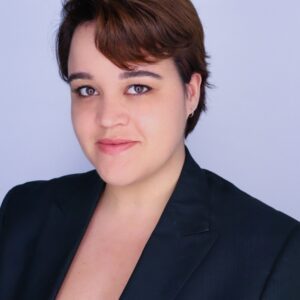
Lísley Pereira Lemos Nogueira Gomes
Virginia Tech, USA
Leader in the conservation field with a decade of experience in human dimensions of wildlife conservation. Bachelors in Biological Sciences at UNIFAL-MG (2013), and MS in Fisheries and Wildlife Sciences at VT (2024). I stand for an equitable world for people to promote biodiversity outcomes
Atendee

Luana Santos
UNESCO Chair on Futures Literacy (UFRJ & Museum of Tomorrow), Brazil
Work areas include socio-biodiversity chains, sustainable tourism, philanthropic projects, biodiversity monitoring research, plant intelligence, and future literacy
Atendee

Luara Tourinho de Oliveira Pereira
University of São Paulo, Brazil
Main activities and collaborations in the areas of conservation biology, spatial analysis, climate and land use change, habitat loss and fragmentation, ecological niche modeling and ecosystem services
Atendee

Lucas Ferreira Lima
University of Campinas, Brazil
I'm Lucas Ferreira Lima, a collaborating researcher at UNICAMP's Institute of Economics. I'm an economist with a master's degree and a doctorate in economic development and the environment with interests in Environmental Economics, Ecological Economics and Agricultural and Natural Resource Economics. I am currently a researcher associated with two FAPESP projects: Conexão Mata Atlântica and SAF Resex Chico Mendes.
Atendee

Lucía Rodriguez Tricot
University of the Republic, Uruguay
Biologist, PhD in Ecology. My interests include understanding the structure and function of biodiversity, open science, community science and environmental education
Atendee

Luis Fernando Merloti
Netherlands Institute of Ecology
I am a soil microbial ecologist focusing on tropical forest ecosystems. My research interests include soil ecology, forest restoration, land use change, climate change impacts, and biodiversity conservation
Atendee

Luis Antonio Costa Gomes
Oswaldo Cruz Foundation, Brazil
biologist, with Master and Ph.D. degrees in Animal Biology from the UFRRJ, Brazil. His research experience and interests are based on research, with themes associated with ecology, species conservation and health. Currently, he works with SISS-Geo at Fiocruz, Brazil
Atendee

Luiza Santos Reis
Vale Institute of Technology, Brazil
My current research addresses paleoecology, land-use change and their effect on bat-plant interactions, in southeastern Amazonia
Atendee
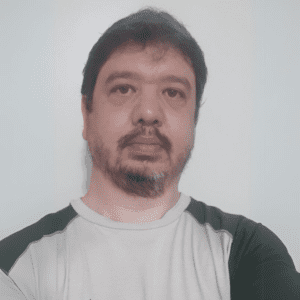
Marcelo Bassols Raseira
Chico Mendes Institute of Biodiversity Conservation & National Center for Research and Conservation of Amazon Biodiversity, Brazil
Participatory management, fisheries agreements and resources, participatory monitoring of freshwater biodiversity, protected areas, threatened species
Atendee

Mariella Butti de Freitas Guilherme
Chico Mendes Institute of Biodiversity Conservation, Brazil
I am a Federal Environmental Analyst at Biodiversity Institute (ICMBio) with 15 years of experience and currently a PhD candidate in Ecology at University of Sao Paulo (USP). I am into geoprocessing, managing protected areas, and animal conservation
Atendee

Mário Sérgio Muniz Tagliari
Municipal Faculty of Education and Environment of Clevelândia, Brazil
Research Assitant, holds a Ph.D in Ecology and since 2016 I have been studying conservationist and Nature-Based Solutions strategies in the Mixed Ombrophilous Forest in Southern Brazil
Atendee

Marta Raquel Cardoso Lopes Correia
The Mediterranean Institute for Advanced Studies, Spain
I am Portuguese and completed a PhD in Ecology at the UC. My research explores biotic interactions (e.g. seed dispersal and mycorrhizal associations), and the impact of global changes on these interactions and on the plant community dynamics
Atendee

Martin Lyambai
UNDP Biodiversity Finance Initiative, Zambia
My name is Martin Lyambai working as an Environmental Finance Officer under the UNDP Biodiversity Finance Initiative here in Zambia. Iam holder of a BSc in Forestry, MSc Energy Policy and MBA. I have over 10 years professional work experience. My interest is on financing biodiversity conservation in low income economies
Atendee

Munjurpet Balaji Akshay Bharadwaj
University of Neuchâtel, Switzerland
I am Akshay Bharadwaj, a PhD student at the Conservation Biology Lab, University of Neuchâtel. My work focuses on understanding the efficacy of mixed-species tree restoration strategies to promote biodiversity recovery and community resilience against invasive species in the tropics
Atendee

Noemi Spagnoletti
ELMEN EEIG Timesis, Italy
Biologist and PhD in Animal Biology. 15 years of experience on conservation biology and animal behavior with universities, research institutes, NGOs, and EU agencies. Biodiversity expert for the EU LIFE programme since 2019
Atendee

Nubia Carla Santos Marques
Vale Institute of Technology, Brazil
My research focuses on how disturbances affect ecosystems and biodiversity. I work mainly at the interface between terrestrial and aquatic ecosystems in the Amazon and the Cerrado
Atendee

Paloma Marques Santos
Instituto Tamanduá, Brazil
I am a wildlife biologist (Ph.D.) and currently researcher at the Anteater Institute (Instituto Tamanduá). I am particularly interested in ecological research that has an impact on the design and implementation of public policies for the conservation of species, especially the maned sloth
Atendee
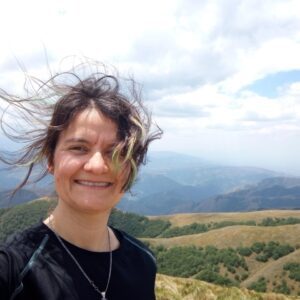
Priscila Ana Powell
National Scientific and Technical Research Council, Argentina
My interests include co-designing conservation and restoration initiatives based on ecology and managers’ experiences. I focus particularly on invasion contexts and emphasize stakeholder engagement and equity
Atendee

Priyanka Sarkar
National Institution for Transforming India
Research interests: Conservation and sustainable management of wetlands; Wetland Ecosystem Services and their economic valuation; Nature-based solutions
Atendee

Rachel Turba de Paula
Catholic University of Rio Grande do Sul, Brazil
I am a postdoc from Brazil, currently working in the development and application of environmental DNA metabarcoding for surveying and monitoring Neotropical biodiversity. I use different molecular techniques to inform conservation plans for endangered species and habitats
Atendee

Sabrina Gurten
University of Innsbruck, Austria
A Swiss PhD candidate at the University of Innsbruck (Austria), is a wild bee specialist and works on eDNA-based biodiversity assessments of pollinator networks in agricultural landscapes. She has a rich background in both practical and theoretical aspects of (conservation) ecology
Atendee

Tamires de Oliveira Andrade
Federal University of Pará, Brazil
The main objective of my research is to evaluate the potential impact of climate change on the production of some important Amazonian crops and the possible consequences on the distribution of their pollinators
Atendee

Wadiyagoda Gedara Dilan Chathuranga
University of Ruhuna, Sri Lanka
Lecturer in Zoology at the University of Ruhuna, Sri Lanka. My research primarily focuses on arthropod vectors and their role in disease transmission to both humans and wildlife including threatened fauna in Sri Lanka
Atendee

Wendell Melquias Medeiros Leal da Silva
University of the Azores & Technical University of Denmark
I am a PhD candidate in fisheries science, focusing on evaluating fish stocks and providing sustainable management advice for the Northeast Atlantic and Southern Africa